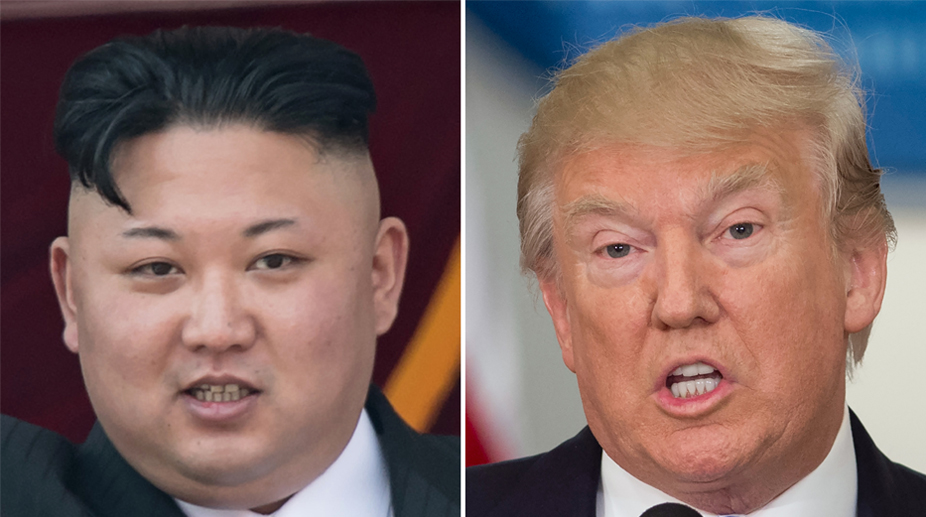With a little more than three weeks to go for the scheduled summit with Kim Jong-un, Donald Trump has been remarkably guarded in his response to the North Korean President’s renewed bluster, this time asserting that he is not interested in discussing what he calls “one-sided demands” that Pyongyang give up its nuclear plans.
He has thus targeted the singular condition of President Trump and his hawkish cabal. And while Trump had threatened a walkout from the high table in Singapore if Kim sticks to his guns, he now appears to be a mite accommodating with the remark, “We’ll see what happens.”
Advertisement
Geopolitics is in a state of flux weeks before the two leaders head for the summit not the least because of the US President’s insistence on “denuclearisation”, verily the uppermost topic on his agenda. And yet the word is rather ambiguous.
North Korea uses it to refer to a long-term process in which all nuclear weapons powers would eventually disarm, while the White House appears to have given its own spin on the pregnant expression. There is, therefore, a fundamental disconnect between the two sides. Not that this was unknown; the point is that Kim has iterated his stand at a particularly sensitive moment.
In point of fact, President Trump seeks the dismantling and eradication of the North Korean nuclear weapons and long-range missile programmes. These are at the core of the tension in the Korean Peninsula. It is pretty obvious that the US President seeks “denuclearisation” only very partially, and limited to North Korea and Iran.
Suffice it to register that a sweeping consensus on the issue is still a long way away, and Mr Kim must be acutely aware of the contretemps. Pyongyang appears to have taken umbrage to this “selected denuclearisation”, given that such selection will be carried out in accord with America’s lights.
Of course, so explosive an issue can scarcely be subject to the diktat of a country, given to global policing. The summit is in itself a moment in history; and the world must hope that history shall not be scripted in reverse.
Kim may not have brought the summit under a cloud quite yet, but he has spelt out his position at the eleventh hour, thus stirring the murky waters at a crucial juncture.
At another remove, despite the inherent ambiguity, both sides had gone ahead for the first-ever summit between a US President and a North Korean leader.
Indeed, a parallel has now been drawn with the Libya model, specifically Muammar Gaddafi’s surrender of his embryonic nuclear weapons programme in 2003. One could argue that both sides have made confusion worse confounded, when the occasion calls for clarity and bold resolve.











